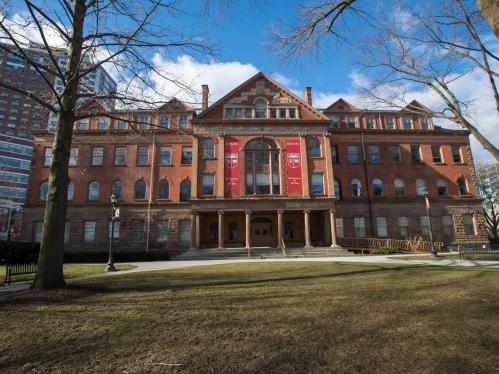
University Diversity Priorities
.
Inclusive Excellence is a framework for the cohesive, coherent, and collaborative integration of diversity and inclusion into the shared pursuit of excellence.
The diversity priorities below guide our institutional efforts in service of this goal.
Recruit, Retain, and Develop a Diverse Community
Attract a university community (students, faculty, and staff) that more closely reflects the state of New Jersey. Provide strategic support to build the capacity of individuals to engage across differences in identity and experience, attending to the difference between compositional diversity and an inclusive community. This dimension refers to community outreach efforts to build awareness of Rutgers as a destination of choice for students, faculty, and staff, professional development to support the development of multicultural competencies, and engagement opportunities to cultivate an inclusive culture promoting connection among groups that are underrepresented.
Promote Inclusive Scholarship and Teaching
Value and support research and teaching that advances an understanding of diversity, inclusion, equity, and access. This dimension refers to promoting engagement across the range of differences present in the classroom, centering students’ backgrounds, experiences, and cultural/linguistic frames of reference as well as the experiences of indigenous and other marginalized communities, and supporting scholarly research on equity and social justice—as well as the scholars who produce it.
Define Sustainable and Substantive Community Engagement
Leverage Rutgers’ educational mission to improve outcomes and reduce disparities for underserved populations in the communities that our campuses are embedded in throughout New Jersey. This dimension refers to marshalling the universities’ core activities of teaching, clinical service, research, student, trainee, and staff engagement in service of the public good promoting the institutional commitment to the community on and off campus. We must engage our publics, ensure community engagement is reflected in the curriculum, reward community engaged research and scholarship, and nurture reciprocal relationships with community institutions. Our aspiration is to serve as institutional anchors, moving beyond location “in” but being “of” and in partnership with the surrounding community.
Build the Capacity of Leaders to Create Inclusive Climates
Equip academic and administrative leaders to engage in critical self-reflection, foster positive relationships, and work toward inclusion within their scope and areas of responsibility. This dimension refers to raising awareness of how bias and discrimination operate along visible and invisible identity lines, building confidence in their ability to act in real time when instances of inequity appear, and actively shaping an organizational climate that enables everyone to thrive
Develop an Institutional Infrastructure to Drive Change
Create and sustain an infrastructure that enables forward movement on these diversity priorities. This dimension refers to the procedures, processes, policies, resources, organizational structures, recognition and rewards for progress, and the use of metrics and other evidence to support institutional efforts to advance diversity, equity, inclusion, and access.